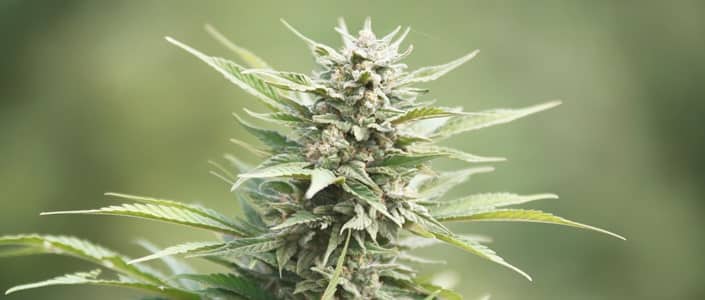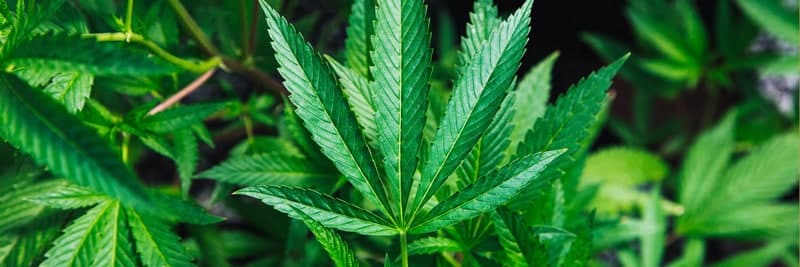Hemp
What is Industrial Hemp?
Over the past few years, the hemp industry has been rapidly expanding throughout the State of Colorado and elsewhere across the country. With multiple waves of laws that are friendlier to hemp growers and an increased understanding of industrial hemp by the general public, there is no surprise that more people are interested in industrial hemp cultivation than ever before.
Because the full legalization of the hemp industry is something that is relatively new, there are still many new developments occurring each year. While farmers are working diligently to try to develop higher quality crops with each harvest, legislators are simultaneously making efforts to make the market more transparent and available than ever before. What remains clear is that anyone with even a remote interest in the industry certainly has a lot to be excited about.
In this article, we will briefly examine the technical definition of industrial hemp and also consider how the industry—particularly in the beautiful State of Colorado—has already begun to unfold. With a firm understanding of the industry and its nuances, you will be much better equipped to be a potential farmer, investor, or general consumer.
What is industrial hemp? How is industrial hemp different from marijuana?
Though the terms “hemp” and “marijuana” are often mistakenly used interchangeably, it is important to note that there a few things that distinguish these crops from one another. Generally speaking, the biggest difference between hemp and marijuana is that will marijuana is typically consumed with the intention of generating a psychoactive “high”, hemp lacks the primary ingredient—tetrahydrocannabinol (THC)—that makes you feel that way.
THC is just one of many cannabinoids that can be found in both marijuana and hemp plants, but only marijuana is THC intensive. Though hemp includes other valuable cannabinoids—such as CBD, CBN, CBC, and others—its relative lack of THC makes the consumption of hemp significantly less psychoactive.
Consequently, industrial hemp is usually considered by legislators to be much safer to consume and the laws surrounding the growing and distribution of hemp are typically much more relaxed. Currently, the State of Colorado defines industrial hemp as a plant that contains “no more than three-tenths of one percent (0.3%) on a dry weight basis.” Anything that contains a larger amount of THC will be classified as marijuana and—whether this crop is being consumed for medicinal or recreational purposes—it will be subject to an increased level of regulations.
What are the possible uses of industrial hemp?
The industrial hemp plant has been cultivated by human beings for thousands of years. Unsurprisingly, people have found many different possible uses for this unique crop over time. In terms of purely industrial purposes, the fibers of the hemp plant make it an excellent resource for paper, rope, clothing, and other fiber-intensive materials. Additionally, the plant has also been recently utilized for more creative uses such as animal feed (particularly for cows).
Furthermore, certain hemp products are also designed to be safely consumed by human beings while still legally falling into the “industrial hemp” classification. Hemp is particularly well-known for its “extractability”—various cannabinoids such as CBD and others can be easily concentrated for cleaner and more efficient consumption. These extracts will often come in the form of edibles, waxes, oils, butters, shatters, and other comparable forms. As time goes on, the ways in which these extracts can be created continue to improve.
What are some of the most common type of hemp extracts that are currently available?
As stated, there are currently many different varieties of hemp extracts that consumers will have to choose from. The extract that makes the most sense for you will depend on what you plan to use it for, your budget, and the qualities that you consider to be the most important.
- Fractional distillation is a process that involves separating various cannabinoids into various fractions by gradually heating a liquefied mixture over time. This makes it possible to choose which cannabinoids are included and which are excluded.
- Whole Plant CBD Extracts will typically include plenty of CBD, various other cannabinoids, and no more than 0.3% THC. The combination of multiple different extracts at once is frequently referred to as the “entourage effect.”
- CBD Isolates will attempt to focus on isolating CBD to the greatest extent possible. These are often considered among the “purest” extracts available.
- THC Free Extracts will include extra steps to assure that absolutely all THC is removed. This means that these extracts will have significantly less than 0.3% THC maximum mentioned above. They are often considered ideal for wellness purposes.
Each of the extracts mentioned above will still be classified as “industrial hemp” due to the lack of THC. If you are new to the hemp industry, you may want to consider gradually experimenting with these different options and see which ones are most compatible with your current tastes.

What are the ideal conditions for growing industrial hemp? Is this easier or more difficult than growing marijuana?
When compared to THC-dominant marijuana, growing industrial hemp is significantly easier. Marijuana requires a constant control of growing conditions and—depending on where in the world that you live—can usually only be adequately grown indoors. Hemp, on the other, offers farmers a bit more flexibility.
Ideally, hemp will be grown in a mild outdoor climate that is characterized by a humid atmosphere, moist soil, and roughly 25 to 30 inches per year. However, these conditions can usually be modified if you live somewhere—such as much of Colorado—that is considerably drier. Watering your hemp crops yourself will make it much easier for you to ensure their overall well-being.
Despite the State’s overall dryness, there are still quite a few things that make Colorado a suitable place to grow industrial hemp. There are a significant number of places where the soil is naturally rich and Colorado also receives an above average amount of sunshine each year. However, there are still many other things—particularly the quality of the seeds—that will need to be accounted for in order to assure a successful crop yield.
What does the future of the hemp industry look like in the State of Colorado?
The full production of industrial hemp is something that has only recently been legalized in Colorado, but since its legalization, the industry as a whole has experienced a significant amount of growth.
Between 2014 and 2105, the number of acres committed to the cultivation of industrial hemp increased tenfold. The past three years have been characterized by a significant remarkable in annual efforts (and collective yields) as well. Because Colorado was among the first states to legalize the industrial cultivation of hemp, it is often one of the first places that are considered by outside investors. Though it may difficult to know exactly what the future has in store, there are certainly many reasons for farmers and investors to be excited.
For more information about our hemp farm, or to learn more about CBD and industrial hemp, contact Blue Forest Farms today.




